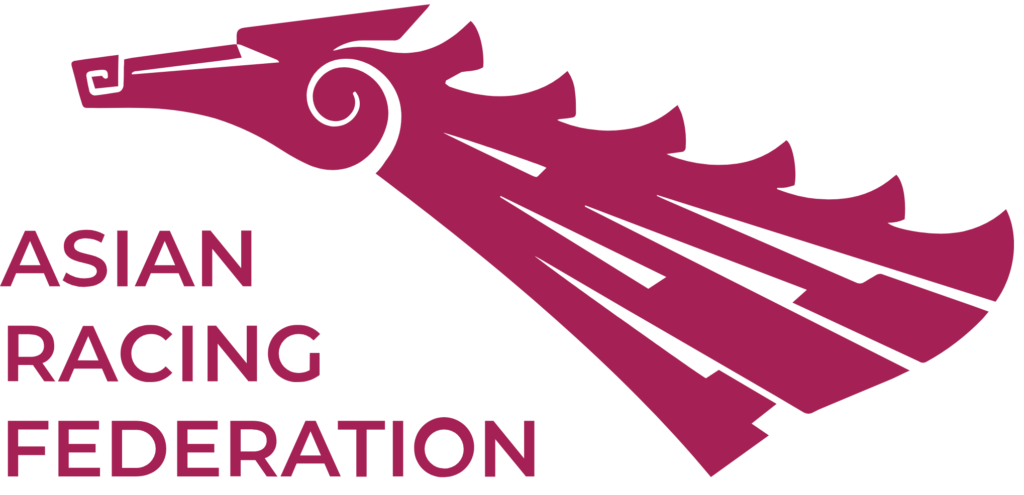It is imperative, to have an industry that is constantly innovating and truly competitive, to have a clear taxation framework that allows stakeholders to thrive, write Aahna Mehrotra and Rashi Tater, for the Asian Racing Federation Quarterly Bulletin, analyzing the “Impact of Applicability of Higher Indirect Taxes on Games of Skill in India.“
This is an abridged version of the contribution published in the Asian Racing Federation Quarterly Bulletin. For the full version and other content please visit asianracing.org/aib/bulletins
Online betting on racing and other sports is prohibited in most parts of India. However, online interactive skill games for cash/ kind prizes (i.e., fantasy sports gaming, rummy, poker, chess, esports, etc.) are an exception and hugely popular. Centrally authorized lottery, gambling at land-based casinos and totalizator wagering at India’s horse racing tracks are also permitted.
Upcoming changes to the tax regime governing these products underlines a key lesson for regulators to understand – that overburdening the Licensed and Regulated markets with taxation drives customers to Under-regulated and Unlicensed markets.
The estimated annual turnover on online skill gaming in India is more than USD 384 million, while the casino sector is projected to reach USD 34.32 million in 2022. Unsurprisingly then, many stakeholders are awaiting with bated breath to see if the Indian government moves Goods and Services Tax (GST) on skill-based gaming from 18% to 28%, in line with horse racing and casinos.
GST is a value-added tax on goods and services implemented throughout India, which is typically borne by the final consumer.
GST rates on gaming and betting are currently:
a) @28% on entry to casinos, and on gambling provided by casinos on the transaction value, i.e., the total amount gambled, plus GST on any other services being provided by casinos (such as food/ drinks etc.);
b) @28% on services provided by a race club by way of totalisator or a licence to bookmaker in such club;
C) @18% on games not involving betting or gambling; and
D) 18%oncommissioncollectedbyonlineskill-basedgamingplatformsforeachgame.
The applicability of GST to gaming and betting has been questioned before several courts in India. Levying tax on online skill games was discussed in Gurdeep Singh Sachar vs Union of India and Ors, where the Bombay High Court ruled that GST is not applicable on the player’s entire deposit but only on the consideration which is payable / collected for the supply of goods or services within the platform.
In Skill Lotto Solutions Pvt Ltd. vs Union of India the Supreme Court of India (SC) upheld the constitutional validity of levying GST on lottery, betting and gambling and ruled that the Constitution empowered the legislature to make laws relating to GST. Further, the Maharashtra Authority for Advance Ruling has reiterated that the GST legislation specifically classifies online gaming under online information and data- based access or retrieval services and would be subject to taxation irrespective of the location of the cloud being outside India.
On the taxability of racecourses, the Karnataka High Court in Bangalore Turf Club Limited and Ors. vs State of Karnataka ruled that racecourses/clubs are liable only for the payment of GST on the commission they receive for the services they render through the totalizator and cannot be levied on the entire amount collected in the totalisator pool. This is because the core principle of the applicable law (i.e., Central Goods and Services Act) is that tax can only be levied on the individual consideration (service fee) collected/received and not on the entire amount (prize pool).
Proposed Tax Rate
In 2021, the GST Council set up by the Central Finance Ministry formed a Group of Ministers (GOM) from the states of India. Among other matters, to deliberate upon casinos, racecourses and online gaming.
The GOM submitted its report in May 2022. While minutes and the report are not yet in the public domain, comments by GOM members in media reports indicate that the GOM suggested:
a) Increasing GST on online skills gaming companies from 18% to 28%;
b) Taxation in online gaming to be based on ‘gross revenue’, i.e., the entire amount staked by the players (total wager), including the contest entry fee paid by the player for participating in the game, and not just on the commission / service fee (levied by the platform) as currently applicable;
c) In casinos, that the tax should be levied on the amount paid at the entry point, i.e., while
d) Purchasing the chips and not on every betting transaction; and
e) No changes to 28% on horse-racing wagers.
Issues and Analysis
If the above indications are true, an increase in GST by 10% for online gaming entities puts them in the same tax bracket as casino gambling and horse racing betting. This will increase the burden of payment on the parties involved (gaming platforms and users) and users will receive less playable value.
As mentioned hereinabove, at present no GST is levied on the prize pool and is only paid on the commission charged by the platform operator for rendering the services. This is because, for such online games, the winning amount in most cases is held in a separate escrow account on behalf of players (and not by the platform operator itself). Such separate holding of the prize pool in an escrow account does not bring any advantage to the platform operator as it is solely for the players, thereby it cannot be considered as a service value rendered by the platform operator.
However, if total transactional value is taxed at the face value, this will reduce participation and profit margins and, cause investment, including Foreign Direct Investment, to drop. Inevitably, both industry participants and players will opt out resulting in a drop of tax collected by the authorities and will lead to an increase in the already massive Unlicensed market.
While the Central Goods and Services Tax Act, 2017 (CGST Act) was envisaged with the intent of levying tax only on the consideration charged for services rendered, and not the entire amount collected in the pool, any shift from Gross Gaming Revenue to face value or entire wager amount, would primarily be antithetical to the core principal of the CGST Act. While the GST on face value would, on paper, translate to an increase of 900% on current taxation, in reality, this would only lead to the proliferation of ‘off the radar’ Unlicensed operators predominantly based offshore, thereby reducing tax accruals.
There is a clear risk that placing gaming with gambling and horse racing will stifle the growth of legitimate skill gaming businesses, and encourage people to find loopholes in the legislation, leading to an increase in Unlicensed and Unregulated gambling businesses, which evade taxes.
Coupled with Indian operators setting up offshore entities for gaming activities, this will also be catastrophic to the foreign investment, as offshore operators will circumvent Indian tax jurisdiction by hosting games in other tax-friendly jurisdictions. The detrimental impact of excessive taxation is experienced in every industry but is likely to be exacerbated further for internet-based operations as the barrier for illegitimate entrants is very low, and setting up abroad may offer a sense of immunity as well.
This rise in attempts to evade higher tax by creation of offshore entities as an escape, has not only led to a decrease in the legitimate economy, but has also led to an increase in the operation of illegal betting and related financial crime funding transnational organised crime, as illustrated in The State of Illegal Betting. In the Indian sub-continent there has been a huge rise in illegal bookmaking and match-fixing syndicates, particularly around cricket.
Conclusion
Indian courts have repeatedly adjudicated that skill-based games must not be treated the same way as lottery and casinos i.e., games of chance, yet the proposal to increase the applicable GST gives an impression that both (games of skill and chance) are being placed in the same bracket, which is not what the judicial intent has ever been. In this regard, a request was also made by certain online skill-based gaming entities to the Finance Ministry to ensure that Rule 31A of the Central GST Rules, 2018 does not apply to the games of skill. This is because, as per the speculated recommendation of the GST Council, if the foregoing Rule 31A is applied, the entire transaction value which includes the prize money or the net commission (revenue) that accrues to online gaming entities would be taxed, which is contrary to the intent of the legislation.
Further, for reasons mentioned above, with the youth getting exposed to unscrupulous ‘fly by night’ operators who tend to operate in the grey zone and have scant regard for responsible operations, there will be no scope for curbing the actual indirect loss (finance or otherwise) caused to the players. This, in effect, would add to the existing conundrum faced by the authorities i.e., tracking illegal operators and pursue the actual intent of the gambling legislations, i.e., to curb the moral vice and social disorder (including suicides) caused due to gambling activities.
While it appeared that the discussion by the GST Council was conclusive, as a final report had been submitted for deliberation in the recently conducted GST Council meeting held on 28th and 29th June, 2022, however the discussion has been deferred to the first week of August. While the Council, in-principle, was in agreement with the recommendations of the GOM, however, certain regulations are yet to be finalised. Accordingly, the GOM is directed to submit a report by July 15th, 2022. To have an industry that is constantly innovating and truly competitive, it is imperative to have a clear taxation framework that allows stakeholders to thrive and not force them to (a) either shut their operations due to failure in meeting the break- even point; or (b) divert them to illegal operations.
__

ARF Council on Anti-illegal Betting and Related Financial Crime produces a quarterly newsletter advising stakeholders about the latest developments in illegal betting and financial crime threatening horse racing and other sports. Each bulletin contains one or two articles on key issues, and new research in this area and analysis of implications for regulators, sports governing bodies and other stakeholders, as well as a curated list of important news articles in the field. Click HERE to subscribe.























